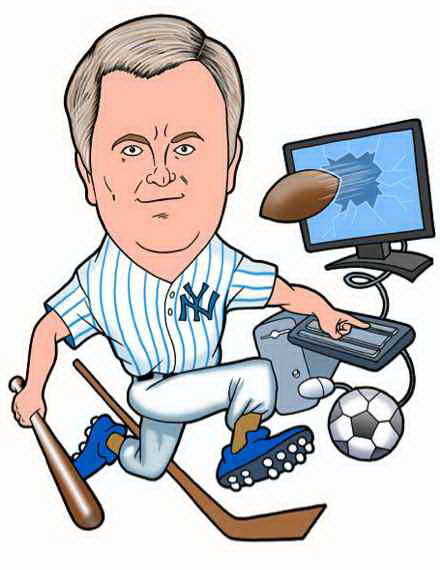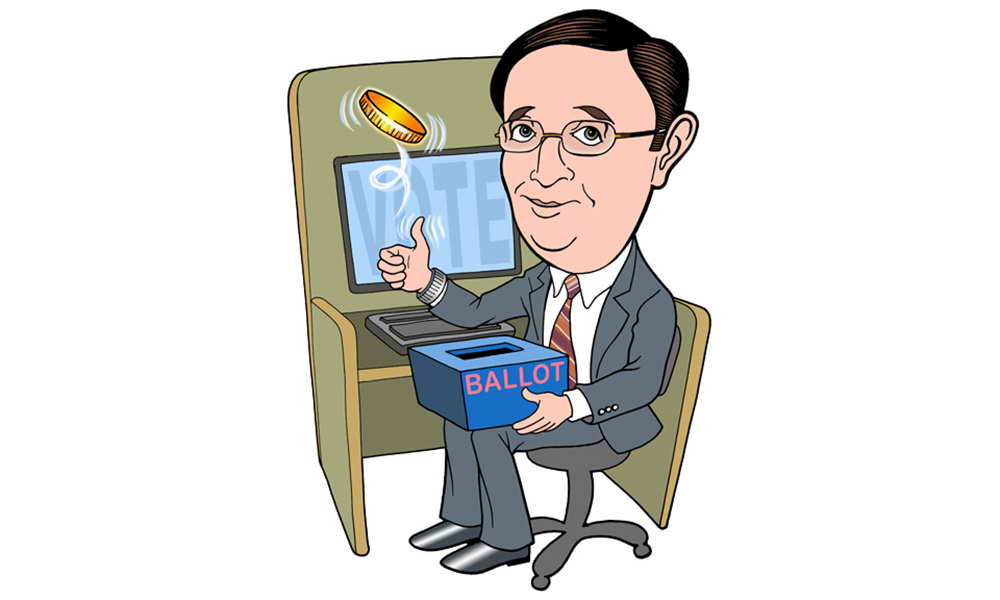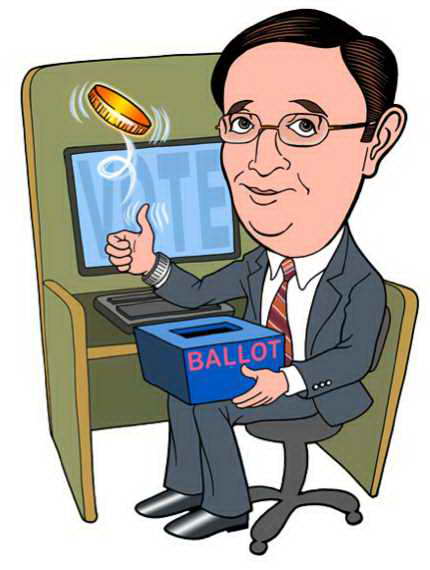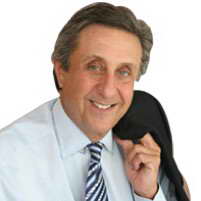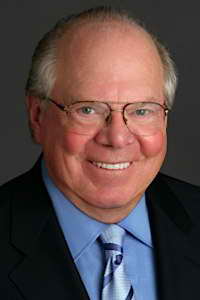The largest explosion in population for the United States occurred in the years just following the end of World War II. Known as the Baby Boomer Generation, this group has been the largest demographic of the American population and has been the driving force of the economy ever since. In the second decade of the new millennium, Baby Boomers are graying and facing the reality of retirement. Will retirement be as rosy as they might anticipate?
The Marist Poll’s John Sparks visits with Marist Poll Contributor Perri Peltz, a distinguished television news journalist and public health advocate.
John Sparks
Perri, the Baby Boomers are graying and approaching their golden years, so the Marist Poll reached out and asked if they thought those golden years were going to be as golden as they had hoped for. What do you think? What will retirement be like for Baby Boomers?
Perri Peltz
You know, it’s such an interesting question. Seventy-eight million people, Boomers, will start turning 65 come 2011. So, this is a huge change in our demographics as a country, and it’s been called everything, including the silver tsunami, that the graying of our population is really enormous, and it’s going to place tremendous demands on this country. How are these people going to be cared for? Who are going to provide for them? What about the finances? That being said, what I find fascinating about it is the Boomers who are entering these retirement years are incredibly optimistic, incredibly upbeat about what their prospects are, in spite of the fact that they’re — we’re in a recession, coming out of a recession, however you want to look at it, and obviously that places tremendous demands on this group, this population.
John Sparks
Well, what do boomers have to look forward to in the area of health care?
Perri Peltz
Health reform is obviously a very good thing for Boomers. The concern that has been stated kind of over and over again is that as you have this enormous number of people entering these years, entering their senior years, obviously health demands go up, and health care demands go up. The question that remains is who’s going to take care of these people? How are their medical needs going to be met? Do we have enough medical personnel to care for Boomers who are reaching this age where their health demands are going to be increasing? So, on the one hand, we have all of these amazing advances in medical technology and medical care, yet do we have the infrastructure? Do we have the personnel to be able to care for them? Are there going to be enough doctors? That is a real question that remains to be seen and whether — how is that gap going to be filled? Are we going to have different kinds of providers that are going to be filling those gaps? That’s a question that I think remains to be seen, but it’s without a doubt a real concern within the medical community.
John Sparks
You mentioned the optimism. Boomers have always had what I call “We’ve got the world by the tail” syndrome. And I say “we” because I am a Baby Boomer born in 1947. We took the challenge of sending a man to moon and back and made it a reality, but there are other things that are just beyond our grasp — a cure for cancer and then, of course, AIDS, Alzheimer’s. You have an expertise and an interest in public health and medicine, do you think that Boomers, the folks of my generation, have a chance of seeing any of those challenges becoming a reality in our lifetimes?
Perri Peltz
You know, I think they do. I don’t think there’s any question about it. I think that the advances that are taking place are really astounding. You look at the new medications that are happening in cancer treatment which are phenomenal. I mean chemotherapy, while it’s still an incredibly important part of cancer treatment, is becoming less of a focus as you start to look at these — this new round of treatments. So, I think that there are all of these advances that are taking place, and I think Boomers are going to be able to enjoy some of those advances in medical care. Are we going to find a cure for cancer during this period? You know, hard to say. Are we going to find a cure for Alzheimer’s? Maybe not. But, it seems as though we are making tremendous strides, and I think that Boomers are going to enjoy some of those benefits of really the things that they’ve been working on during all — during this time.
John Sparks
They’ve always had this terrific idealism besides in the areas of health, this idealism that perhaps we might even — we would seek and we would find an end to poverty. I know that you work with the Robin Hood Foundation. That’s an organization dedicated to fighting poverty. What do you think about an end to poverty? Will we be able to accomplish a goal as lofty as that?
Perri Peltz
Oh, I think that’s a really, really, really difficult one, and I think that you know with the economic period that we’re in certainly has made it even more difficult. I think that the good news about this population, about the Boomers entering retirement, they’re not really retiring. They are staying so engaged, and the numbers seem to bear that out, that this a group of people who have really little interest in stopping their activities and that they want to remain engaged, that they want to continue with the idealism for which they’ve been known for such a long period of time, that they want to continue with that and engage in fighting poverty and in fighting so many of these things. So, I think the good news is their enthusiasm, their idealism is certainly not going to end just because they turn 65. So, hopefully, that will continue, and that will help to end some of these bigger issues that we are dealing with. One of the things that I love is how many of the Boomers are volunteering and trying to make change. So, perhaps, they’re leaving the traditional workforce, but they certainly are staying engaged, volunteering in numbers that have been unprecedented, and that is only good. Right? So, whether we can fight poverty or win that battle, that’s an enormous question, but as long as this incredible force of people, who are idealistic, stay engaged, chances are good that real things yet can be accomplished.
John Sparks
Another thing that Marist asked Boomers had to do with things that they might expect to see in their lifetimes that go beyond health issues — living on other planets, microchips to make us smarter, human robots. This is certainly not the same world I was born into, but what do you see on the horizon in the form of technology, and will it be for the better or worse in the years to come?
Perri Peltz
You know it’s a great question, and I look at the age that we are living in right now, put aside living on another planet, the way that we are connected, the Internet, all of these unbelievable things that I find as though we’re living in this incredible era. So, you think about what is the next step, and it’s so hard to understand that as you’re just trying to figure out how to stay current with this technology that we have. So hard to say where it’s all going, but I think it’s such an incredible period of technology development and growth, you know, who knows what’s coming next?
John Sparks
Perri, many of our Marist listeners remember you from your days at WNBC. Can you catch us up on what you’re doing these days?
Perri Peltz
I remember … you know, I was with WNBC for a long time and punctuated — I went to CNN for a couple of years, I was at ABC for a couple of years, loved the work that I did. I had an incredible opportunity and largely focused on issues that were somehow related to public health, whether it was addiction issues or disease problems or … the AIDS epidemic is really how I got started in journalism. So, it was an amazing, amazing opportunity. About three or four years ago, I decided I wanted to return to school. I had always planned after I graduated from college to go to medical school and public health school and really focus on issues relating to public health. I never went to medical school. I kind of got sidetracked and wound up going to WNBC and starting out as a medical reporter focusing on lots of these kinds of issues. So, after 20 years in the business, I decided I wanted to go back to medical school. I did. I wound up staying for one year in medical school and then realizing that I really wanted to focus more on public health issues, that at this point in my life it was unlikely that I was going to start practicing medicine, and really what I was — wanted to remain focused on were issues concerning public health and, in specific, access to care for poor people. So, I’m now at Columbia. I’m in their doctoral program for public health and pursuing these issues about access to care, and the issues of aging certainly tie into that. I mean, what happens not only is you have this incredible population of people who are reaching retirement age, but what about the numbers of poor people? And that has traditionally been a problem in the United States. How do they get health care? And now you have to magnify that, right. As you look at this population of people, what happens to the people who don’t have health insurance, who are poor? How do they access care, and how do they access care now that they are coming in numbers that we have never seen before? So that’s really what I’m focusing on. I still try to stay current in journalism. I have a show that I do once a week for the SIRIUS XM network, which I love, and I do that once a week, and we focus on a health care issue each week, so that’s been really you know terrific and that’s how I kind of stay engaged with journalism. But, other than that, I’ve largely been a student. So, that’s what I’m doing.
Related Stories:




